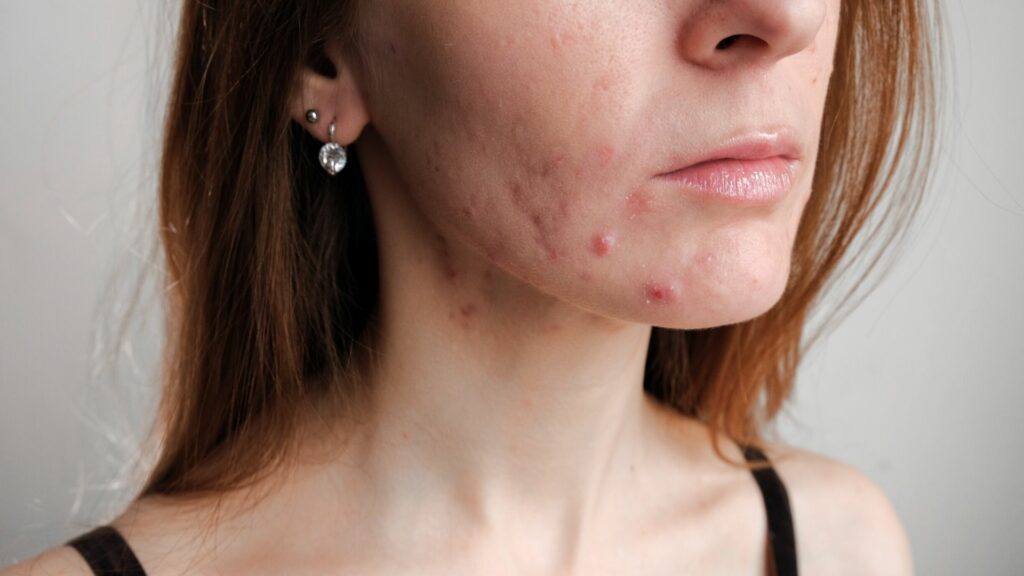Often affiliated with the teenage years, acne - a long-term skin condition that occurs when dead skin cells and oil from the skin clog hair follicles – is increasingly common among adults in Belgium, according to data collected by the Royal Belgian Society of Dermatology and Venerology (RBSDV).
The RBSDV, the national society of dermatologists, said in its latest study that acne persists in between 20% to 40% of the Belgian population after the age of 25, with cases of acne in adults becoming increasingly common over the past ten years.
Juvenile and late-developing acne are both related to an excess of sebum that promotes the multiplication of bacteria naturally present on the skin but experts say that there are differences. Adults are more likely to experience affected areas around the jaw or perioral area (the area immediately surrounding your mouth) while in adolescents, it is more on the forehead and middle of the face.
Related News
The RBSDV said that the causes can also vary, with adolescents falling victim mostly through hormonal changes while tobacco, pollution, and diet can be attributed to adult cases. But in both young and old, the most common cause comes down to genetics. Depending on hereditary factors, the sebaceous glands may be more or less strongly sensitive to hormonal variations.
In adult cases, the sufferers are most often women. Menstrual cycles, pregnancy, menopause, or taking certain contraceptives are all cited as possible reasons why females are more affected by late-developing acne. Most birth control pills contain both estrogen and progestin; while estrogen helps reduce pimples, progestin increases them. So, depending on the proportions of these molecules, acne breakouts can occur due to birth control pill use.
The treatment of acne in adults usually comes in the form of oral medication but the success of the treatment can only be seen, in some cases, after several years of use. This can lead to psychological issues related to the stigma of being afflicted with what is still deemed a teenage malaise as an adult.
Experts, therefore, recommend both medical and psychological support in the treatment of adult acne.

